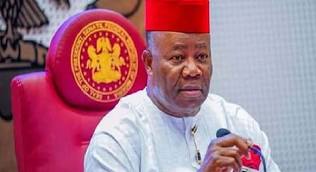Barely few days after President Bola Tinubu forwarded the Student Loans (Access to Higher Education) Act (Repeal and Re-Enactment) Bill 2024 to the National Assembly, the Senate on Wednesday passed the bill.
The passage of the bill was sequel to the presentation by the chairman of the Senate’s committee on tertiary institutions and TETFUND, Muntari Dandutse, of the committee’s report on the bill.
It would be recalled that the Student Loans (Access to Higher Education) Act (Repeal and Re-Enactment) Bill 2024 was first signed into law by President Bola Tinubu in June 2023 to enable indigent to access interest-free loans to pursue their education in any tertiary institution in the country.
However, the implementation was postponed for a period after which the President wrote to the upper chamber of the National Assembly on March 14, seeking a repeal of the Students Loans Act 2023 and a re-enactment of the Students Loan Bill 2024.
The President’s letter reads: “Pursuant to Section 58 (2) of the Constitution of the Federal Republic of Nigeria, 1999 (as amended), I forward, herewith, the Student Loan (Access to Higher Education) (Repeal and Re-enactment) Bill, 2024 for the kind consideration of the House,” the President’s letter reads.
“The Student Loan (Access to Higher Education) (Repeal and Re-enactment) Bill, 2024 seeks to enhance the implementation of the Higher Education Student Loan Scheme by addressing challenges related to the management structure of the Nigerian Education Loan Fund (NELF), applicant eligibility requirements, loan purpose, funding sources, and disbursement and repayment procedures,” Tinubu added.
Similarly, the Student Loan (Access to Higher Education) amendment bill, 2024 also sailed through third reading in the House of Representatives on Wednesday.
The House of Representatives adopted the report of the joint Committees of the both chambers on Tertiary Institutions and TetFund.
By its provisions, bill seeks to ensure smooth access to higher education and provide the required assistance in the area of educational advancement through loans needed by Nigerian youths.
Specifically, the core objective of the bill is to provide a legislative framework to support the establishment of the Nigerian Education Loans Fund for general administration of the management and disbursement of the loans to beneficiaries.
The approved bill based on the House of Representatives’ deliberations seeks to, among other objectives to: “Provide loans to qualified applicants to pay tuition fees, charges and up keep during their course of study in approved Tertiary Education Institutions and Vocational and Skills Acquisition Institutions in Nigeria.
“Build, operate and maintain a diversified pool of funds to provide loans to qualified applicants and ensure access to Higher Education, Vocational Training and Skills Acquisition.
“Ensure the recovery of all debts to the funds from loans granted to applicants except where the Board believes that a Loanee should be exempt from repaying his/her loan because of: death; consideration of hardship or equity; impossibility or undue difficulty or the expenses to be incurred in the recovery of the loan being far more than the amount sought to be recovered.
“The Joint Committee deliberated on the provisions of the Bill and took into account the views expressed by Distinguished Senators and Honourable members during the debate on the general principles of the Bill at the Second Reading stage.
“In addition, the Joint Committee placed adverts in the media in support of the ‘constituency outreach’ principle in legislation while ensuring that the Bill is publicized and relevant stakeholders engaged to contribute to the content of the Bill.
“Accordingly, the Joint Committee conducted a public hearing on Monday, 18th March, 2024, in order to collate stakeholder’s views on the Bill as inputs to enrich the legislative proposal.”
While presenting the highlights of the joint committee’s report, Minority Whip, Hon. Usman Kumo noted that the “Bill contains tremendous benefits for educational advancement of the nation.”






